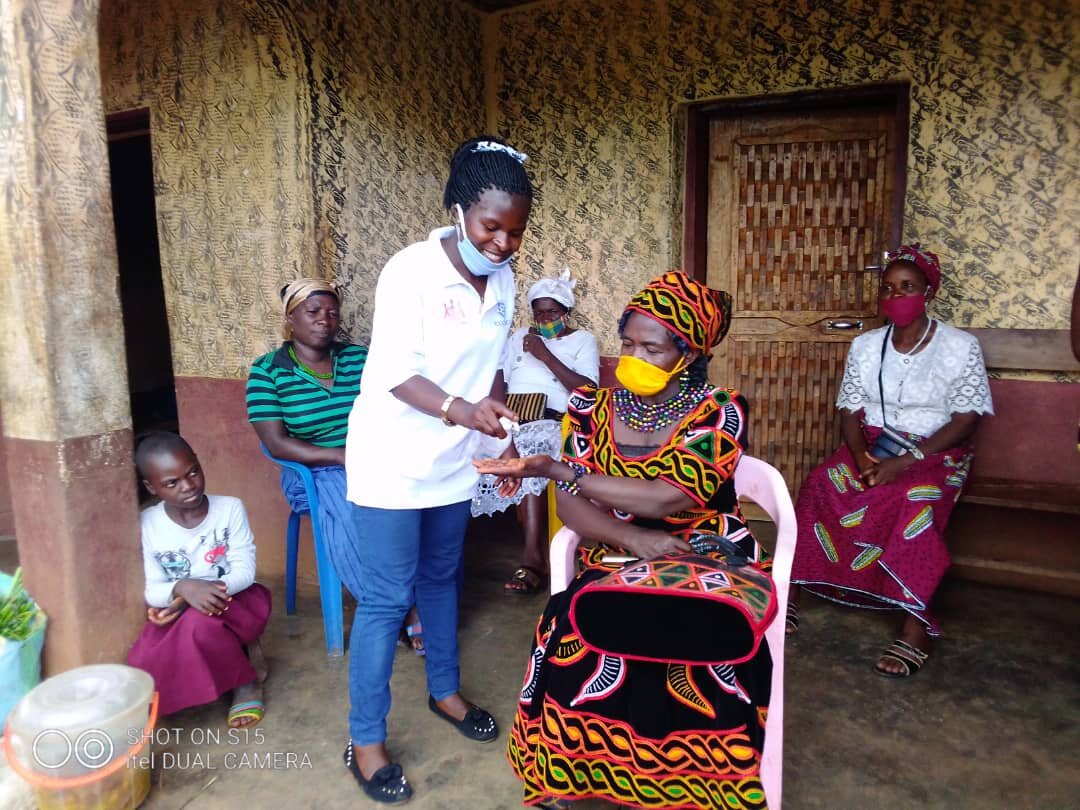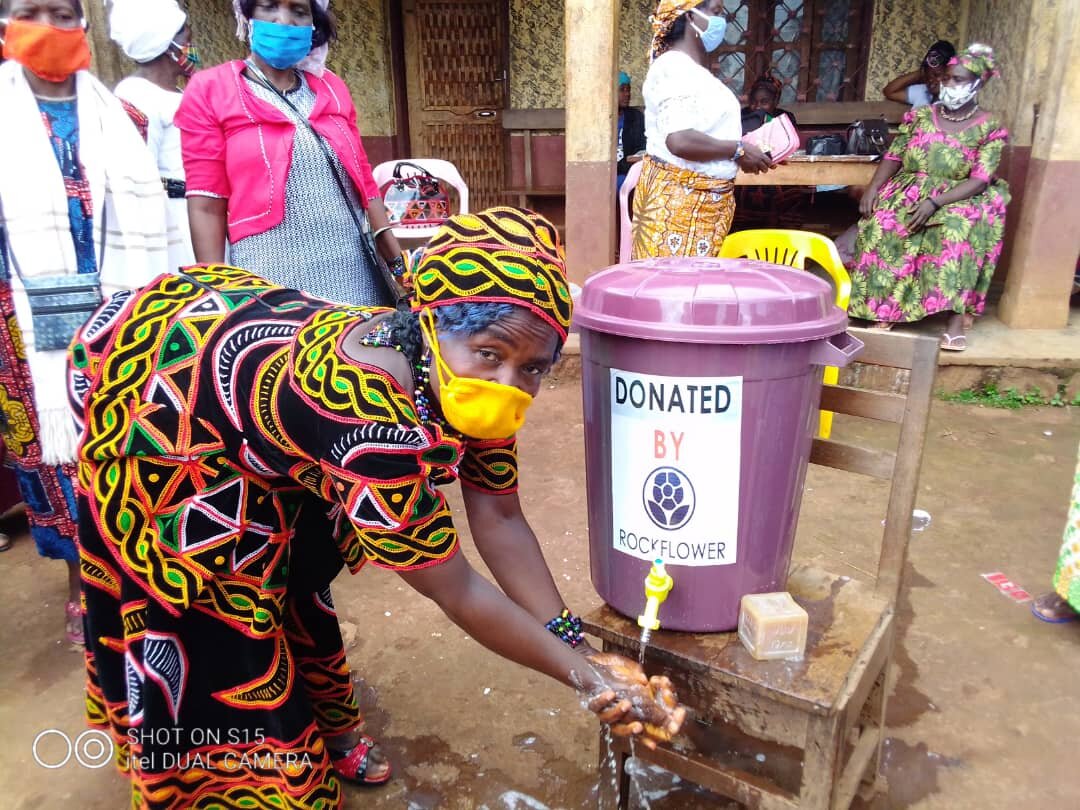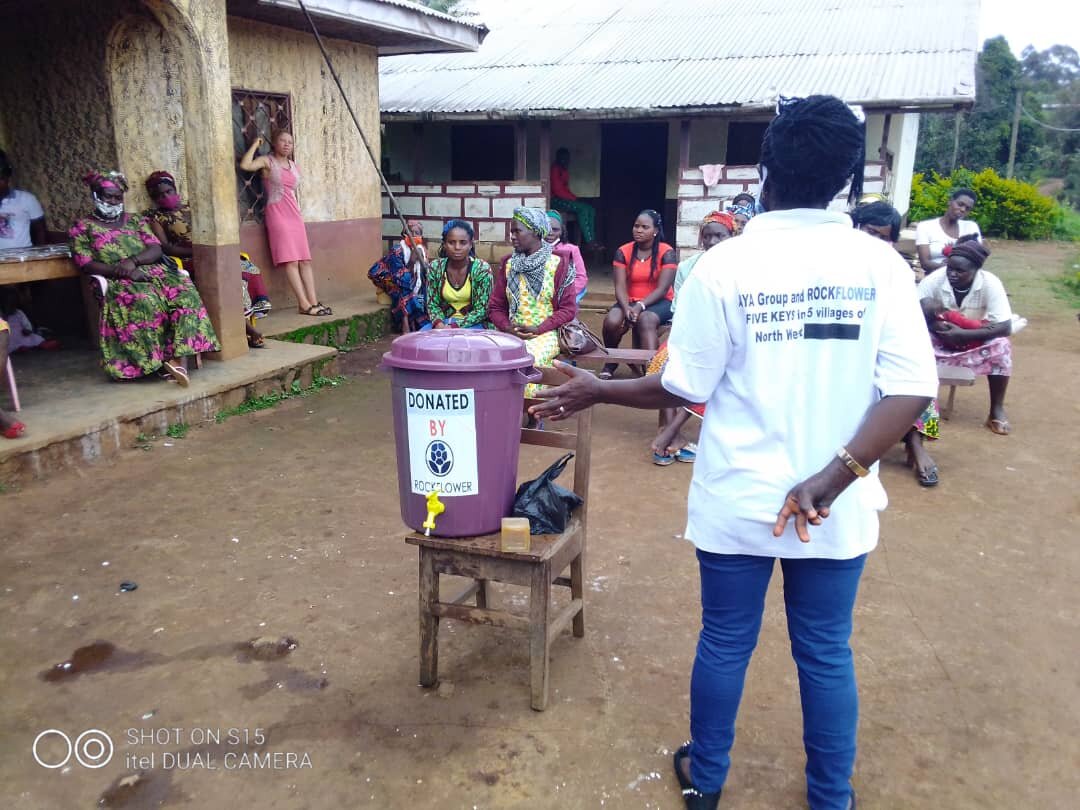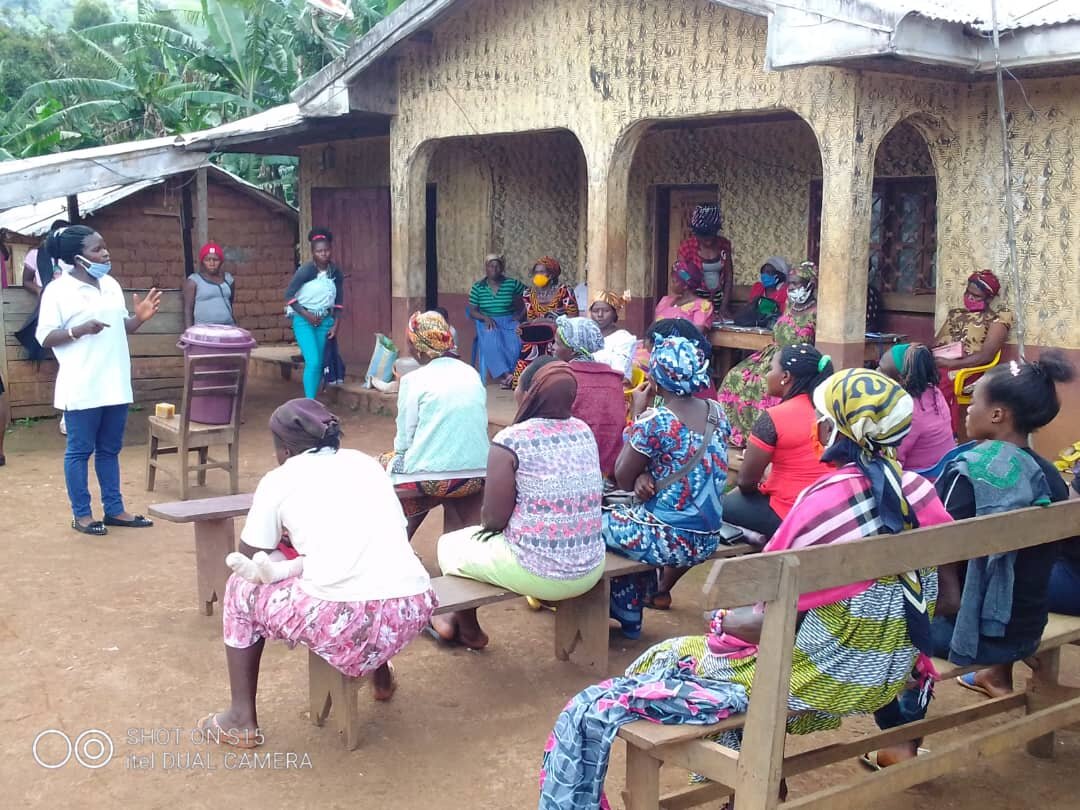Cameroon
On March 18, 2020, the Prime Minister and the Minister of Public Health took 13 major steps including the closure of all air, land and sea borders into and out of the country, the closure of all schools, the suspension of entry visas and a call to the population to observe strict hygiene and sanitation rules prescribed by the World Health Organization Full Government Response Strategy.
The following is an excerpt from correspondence with Roseline, Executive Director of the African Youth Alliance (AYA).
Concerns and Challenges
“I will not describe how challenging it is to keep safe without a constant supply of running water, hand sanitizers are a luxury we cannot afford, and our anxiety is high as we know how broken our health system is, I am grateful as rains have started and we can have rainwater for now, the children are healthy, [as of April 1] our villages have not yet recorded cases so far.
As I shared with you in Canada, the communities in which we intervene are already affected by a socio-political armed conflict since 2016. AYA is the only organization supporting rural women and girls in those villages. This year, Rockflower is our only donor so far.
The main challenge is having basic funds to provide education on what COVID-19 is and the hygienic measures for rural women and girls in the local languages. Apart from the little education we started doing before we had to suspend activities, no information has yet reached our rural women and girls on the pandemic.”
Adaptation Measures
“To keep our three main volunteers in the village safe, we painfully agreed with them to stop activities for now, due to a lack of funds. I am writing to different people, asking if they can help support with funds for the education of rural women and girls on COVID-19.
They do not have access to information, there is no electricity or internet in the village. We are very worried about what will happen to all of them if the disease arrives in the communities. These communities already fragmented by war are just not prepared at all. We trained the volunteers in the village ourselves from information read on the internet so they have a basic knowledge. However, they need support in terms of protective wears while going around communities to do education (face masks, gloves, sanitizers). They also suggested that we distribute the hand sanitizers, provide buckets for handwashing stations in public spaces that women and girls frequent often in the village. Unfortunately, for now, we do not yet have support for that. We had already planned to train them on how to produce soap bars and detergents under our current Rockflower project, which will greatly assist them, as well as all surrounding communities.
“It is farming season already, rains have started and the crops are not waiting.”
The only activity we can keep running is the one categorized under the Access to Food and Water key. Organic agriculture, fruit tree planting and water catchment protection through tree planting. Women were already provided with farming and planting inputs. They have started their group vegetable gardens and farms. The volunteer in charge of that activity has requested to continue to monitor the gardens and farms with the women while respecting health and safety measures. It is the farming season already, rains have started and the crops are not waiting, they will grow.”
Emergency Fund
The Emergency Fund from Rockflower provided buckets with taps and soap bars that were placed in public village spaces to enable regular hand washing. The volunteers of the African Youth Alliance received face masks and hand sanitizers. AYA volunteers were trained on what COVID 19, the means of transmissions and how to prevent contamination at the community level. These volunteers will continue to provide awareness and education opportunities for community members.
Update from May 2020
African Youth Alliance is currently undergoing a project in partnership with Rockflower, Five Keys in Five Villages, that began in January. Progress was made throughout the first quarter of 2020. The COVID-19 outbreak caused major setbacks in March. Due to the rural setting AYA works in, there have been varying reactions by the community including fear, panic, disbelief, and mockery. AYA continues to provide educational opportunities on preventative measures and updates on statistics. Additionally, they have continued their work in the village of Tumuku. Read more on Continuing Reproductive Health through the COVID-19 Pandemic.





